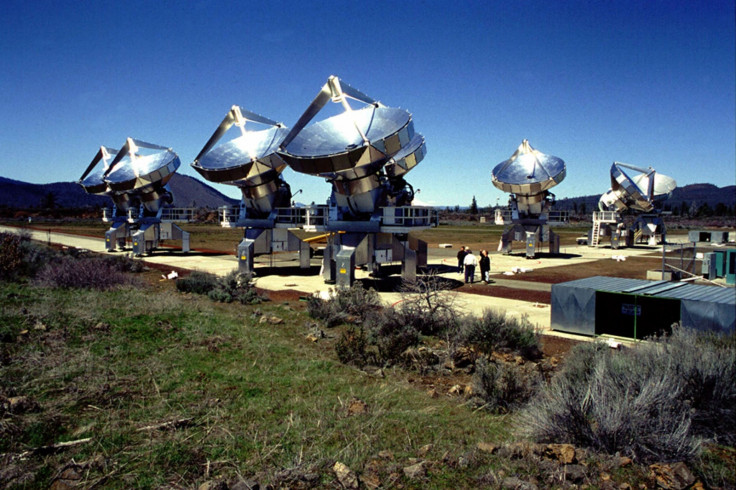Signal from nearby star 'may be extraterrestrial communication' say astronomers
A Russian telescope has observed "a strong signal" from the star, HD164595, in the Hercules constellation.

A mysterious signal spike from a spot in deep space 95 light years away from Earth is being investigated as possible communication from intelligent alien life.
The unusual signal apparently from a 6.3-billion-year-old star in the Hercules constellation was originally detected in 2015 by the Russian Academy of Science-operated RATAN-600 radio telescope.
But the discovery was kept secret from the international community until it emerged in a research paper announcing a "strong signal in the direction of HD164595," which is the star's designation.
The star is somewhat similar to Earth's sun and has at least one planet, the size of Neptune, in orbit around it.
Italian SETI (Search for Extraterrestrial Intelligence) researcher and mathematician Claudio Maccone and Russia's Nikolai Bursov of the Special Astrophysical Observatory are the principal scientists examining the discovery. They are calling for "permanent monitoring of this target."
They’re not saying it’s aliens, but signal traced to sunlike star sparks SETI interest https://t.co/Q5Lk42lA18 pic.twitter.com/dox1218NIs
— The SETI Institute (@SETIInstitute) August 29, 2016
"The signal conceivably fits the profile for an intentional transmission from an extraterrestrial source," said Alan Boyle, author of The Case for Pluto who reported the discovery for Geekwire. "But it could also be a case of earthly radio interference, or a microlensing event in which the star's gravitational field focused stray signals coming from much farther away.
"In any case, the blip is interesting enough to merit discussion by those who specialise in the search for extraterrestrial intelligence." Another possibility is that it could merely be something military — earthling military.
Texas A&M University astronomer Nick Suntzeff cautioned Ars Technica that he would be sceptical because the signal was detected at 11 Ghz, a radio spectrum used by the military.

"God knows who or what broadcasts at 11Ghz, and it would not be out of the question that some sort of bursting communication is done between ground stations and satellites," he said. "I would follow it if I were the astronomers, but I would also not hype the fact that it may be a SETI signal, given the significant chance it could be something military."
Pinpointing the signal
The Russian telescope that detected the signal is not much help in clarifying the issue, warns Seth Shostak of the the SETI Institute in northern California. Because the telescope receives signals over a very wide platform it is difficult to pinpoint the signal, he told the Guardian.
If it is coming from a large section of the radio spectrum it would be more likely coming from a quasar or another source of stellar "noise." If it is over a narrower band but very strong it would likelier be the product of an intelligence. Given the telescope's limitations, it's difficult to know which it is.
A statement on the SETI web site said: "Chance that this is truly a signal from extraterrestrials is not terribly promising. Nonetheless, one should check out all reasonable possibilities, given the importance of the subject."
The detection of the signal and investigation will be discussed at the IAA SETI Permanent Committee at the International Astronautical Congress in Guadalajara, Mexico, on 27 September. This is where Elon Musk will reveal his plans to colonise Mars.
© Copyright IBTimes 2025. All rights reserved.






















